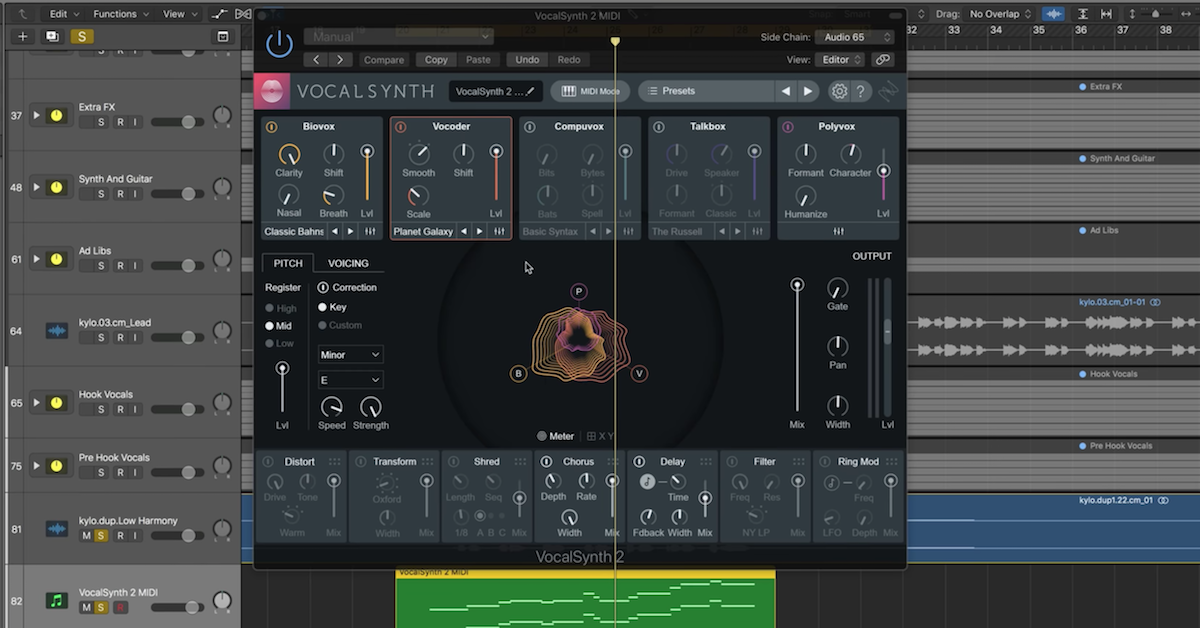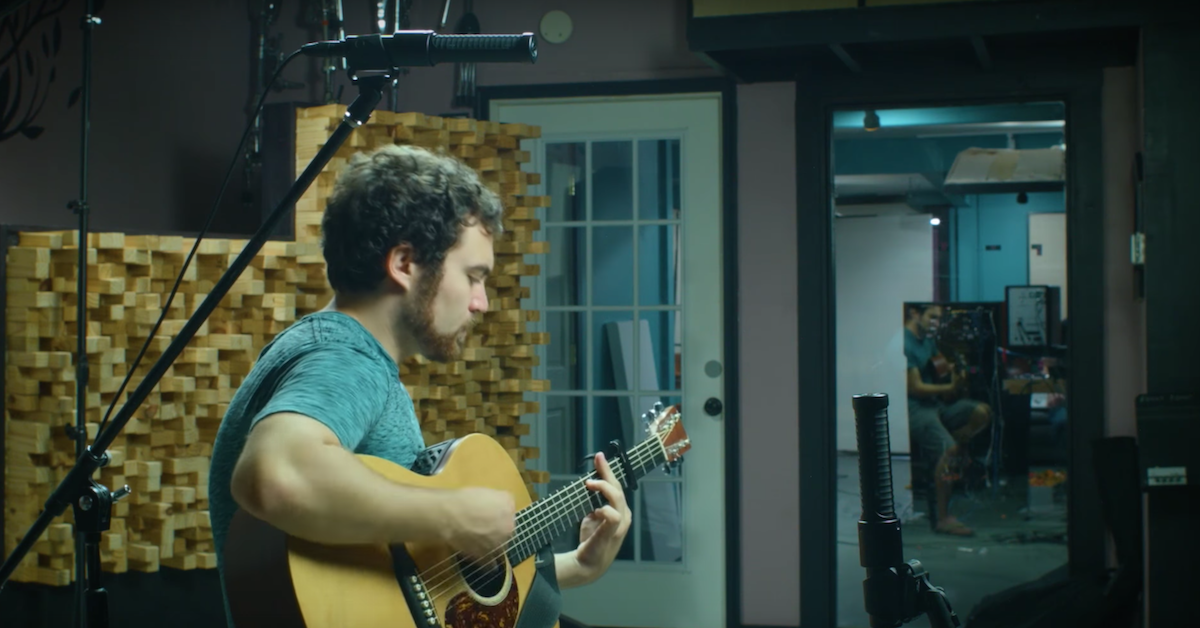9 Time-Sucking Pitfalls To Avoid (Don’t Go Down The Rabbit Hole!)
Article Content
Just about everyone who produces music has had the experience of wasting time in the studio — whether it was 30 minutes spent tweaking plugins or an afternoon spent trying to perfect a part that ended up getting cut. Making music is usually not the most linear process, but wasted time can be costly when you’re paying for studio time or using free time to record.
When I catch myself going down a creative rabbit hole — chasing some elusive sound that refuses to be found — I like to pause and ask myself a simple question:
Is this going to matter to someone hearing this song for the first time?
It can be hard to answer this question honestly, but it’s important information to have when you find yourself spending an increasingly unreasonable amount of time trying to nail down minutiae in a recording. If the element of the song giving you trouble is absolutely essential, then taking an afternoon to perfect it is likely a good investment. If it’s something that will be easily overlooked, or that you’re simply unsure about, it’s worth considering whether the time you’re spending on it is in proportion to the amount of appreciation your listeners will have for it.
Rabbit holes come in many shapes and sizes, and these are a few of the most-hated time-suckers I’ve encountered.
1. Fixing Sounds That Aren’t Broken
Countless times, I’ve come up with parts I like, gotten a tone I think sounds good, recorded a good take, and then found myself asking, “but what if this could be better?”
Sound familiar? You have a hunch — maybe it needs more reverb! — and try it out … but it doesn’t sound quite right. So you keep tweaking effects, adding plugins. After some time has passed and you’re still not satisfied, you bypass all the processing and realize none of it improved anything.
If you can identify real problems with the tone of an instrument — try to identify them and address those issues. I’m all for creative experimentation in the studio, but there’s a fine line between productive risk-taking and self-indulgent knob-twiddling. Knowing when something is really “good enough” is an essential skill for any producer — if a part is working then stop messing with it and move on.
2. Paying Too Much Attention to Background Layers
If you’ve read any of my other articles on this site, you’ve seen me harp on similar points to this before: some parts of an arrangement are simply more important than others. Lavishing unnecessary amounts of attention on background parts can take many forms, from playing with stereo mic placements for a shaker take, to endlessly tweaking settings on a soft-synth pad.
As satisfying as it may be for you to get lost in the details of your productions, remember to ask yourself if your audience is likely to share in that joy with you.
If the part demanding your attention is some primary layer of the song — the vocals, the drums, a lead instrument — take the time to get it right. If the part is less essential than that, find a simple way to address whatever issues you’re having with it and limit the time you spend there. Nobody is going to find the easter eggs you put in a song if they don’t like it enough to listen to it at least once all the way through.
3. Trying to Completely Transform a Track with Effects
The process of getting the tone of an instrument right starts the moment you play the first note. This idea certainly holds true for physical instruments — a glassy digital synth is likely not going to give you warm analog tones, and vice versa — and it’s even more true with samples. If the snare tone you’re after is fluffy and crisp with a silky, long tail, no amount of processing on a sample of a ringy, keyed up snare is going to get the tone you want. If you’re looking for a tight kick sound like you’d find on a vintage soul record, a boomy 808 kick is just not going to give you that tone.
Take the time on the front end to find a sound that satisfies at least most of what you’re looking for. If you can’t find something that fits 100%, aim for 80% and then start adding processing. Five extra minutes of listening to samples on your hard drive might save you 30 minutes of A/Bing different effects settings, only to end up concluding that none of them do what you wanted them to.
4. Minor Automation Tweaks
Maybe there’s a lead melody that just isn’t cutting through the way you want. So you try raising the volume, but now it’s too loud. So you automate down a section here and a section there, but then you realize a note in the middle of that phrase gets buried now, so you automate that note back up. And an hour later, you’ve drawn a very cool angular snake on the track automation, only to achieve a worse version of a sound you could have had in 15 minutes.
Before your automation curve starts getting out of hand, first ask: is there any processing that could be keeping the part from sitting where it needs to be? Maybe there’s an EQ cut that’s keeping the part from shining through the mix. Or maybe the track has been over-compressed to the point that you’ve lost dynamic movement that would actually help the part sit more naturally. Or maybe some other instrument is being hyped in a way that makes it compete unnecessarily. Simple solutions are often not only faster, but sound better too. Save detailed automation for your final round of revisions.
5. Forcing Under Rehearsed Material in the Studio
The weekend you booked studio time finally arrives, and you’ve got a new song you’re really excited about recording. The lead vocal isn’t 100% there, but you can work it out in the studio…
Can you though? Working material out in the studio can be a great way to capture takes that feel fresh and have the hard-to-replicate energy of a new idea springing to life. But it can also be a risky gamble, especially when budgets and studio time are limited.
As hard as it may be, sometimes we just have to save underdeveloped ideas until they’re really ready. If you find yourself recording bad take after bad take of a part you know is under-rehearsed, it may be time to reconsider how you’re using your studio time. How long does it take you to perfect something in your practice space? It’s not going to take any less time in the studio. Be realistic about whether you have the time to spare. If you don’t, it’s probably wise to save it for another day.
6. Recording Takes When Editing Would Be Faster
You record a take, and it’s almost there! Maybe a few notes of a vocal line were pitchy, or the timing of a guitar phrase was a little off. So you try one more! This will be the one! Hmm, well, maybe not, but the next one is it!
If a performance isn’t noticeably improving from one take to the next, it’s probably time to stop. If the only issues you’re trying to fix are minor quibbles, you can probably edit them away in less time than it would take to record a take, play it back, talk about whether you liked it, ultimately decide you need just one more take, rinse and repeat.
7. Editing When Recording More Takes Would Be Faster
See what I did here? Though the last point is one I’ve personally experienced many times, I’ve also seen the opposite be true, especially when working on spur-of-the-moment ideas. Sometimes, someone comes up with a great idea in the studio, but they can’t nail it on the first take.
If you’re in the producer’s chair, it is literally your job to know when to ask for a better take, and when to move on. Sometimes, editing is the faster route. Sometimes, it can be too big of a job to do well enough, quickly enough. Learn to tell the difference between a take that can easily be polished up and one that could just be done better.
8. Deferring on Decisions That Are Yours to Make
“Yeah, I dunno, I think it sounds pretty good, but what do you guys think?”
These are risky words to find yourself saying. Trying to make decisions on a consensus basis can slow things down enormously. If you’re producing, the band or artist is relying on your judgment and expertise, and it’s in everyone’s interest for you to act like it. If you have to deliver bad news or show tough love, learn to be diplomatic about it. Your clients and collaborators will ultimately be happier if you (gently) cut off their bad ideas but deliver a good result, than if you indulge their half-baked ideas only to waste their money and studio time.
9. Gear Lust
The final rabbit hole on my list is one that is all too familiar to me, and it might be one you can relate to as well. I used to playback a recording, frown, and proceed to spend huge chunks of time researching what gear might help me take my recordings to the next level. I would dream and read about instruments, mics, and outboard gear that I couldn’t afford and had no plans to buy. I learned about some cool gear, sure, but I could have just as easily done that research at a time that I hadn’t specifically set aside for recording music.
The only way out of this rabbit hole is to embrace working with the gear you have. Rather than cruising eBay, do some research about how to get the tones you want from the gear you have. There’s a ton of information out there. In fact, you’ll probably find a few ideas on this website!
The truth is, some of the weirder detours I’ve taken while working on recordings have led me to some interesting discoveries, and in some cases, hard lessons. I’m not sure I’d say that those lessons were worth it, but I try to find silver linings where I can. The reality for most of us is that budgets and time are limited and that we’d rather do a good job finishing a song on schedule and on a budget than “learn a valuable lesson.”
Time spent working on the big picture of a song, fixing real problems, and focusing on things that are in our control is time well-spent. Focus on the things you know will help make your music pull listeners in. Everything else is just icing on the cake.






